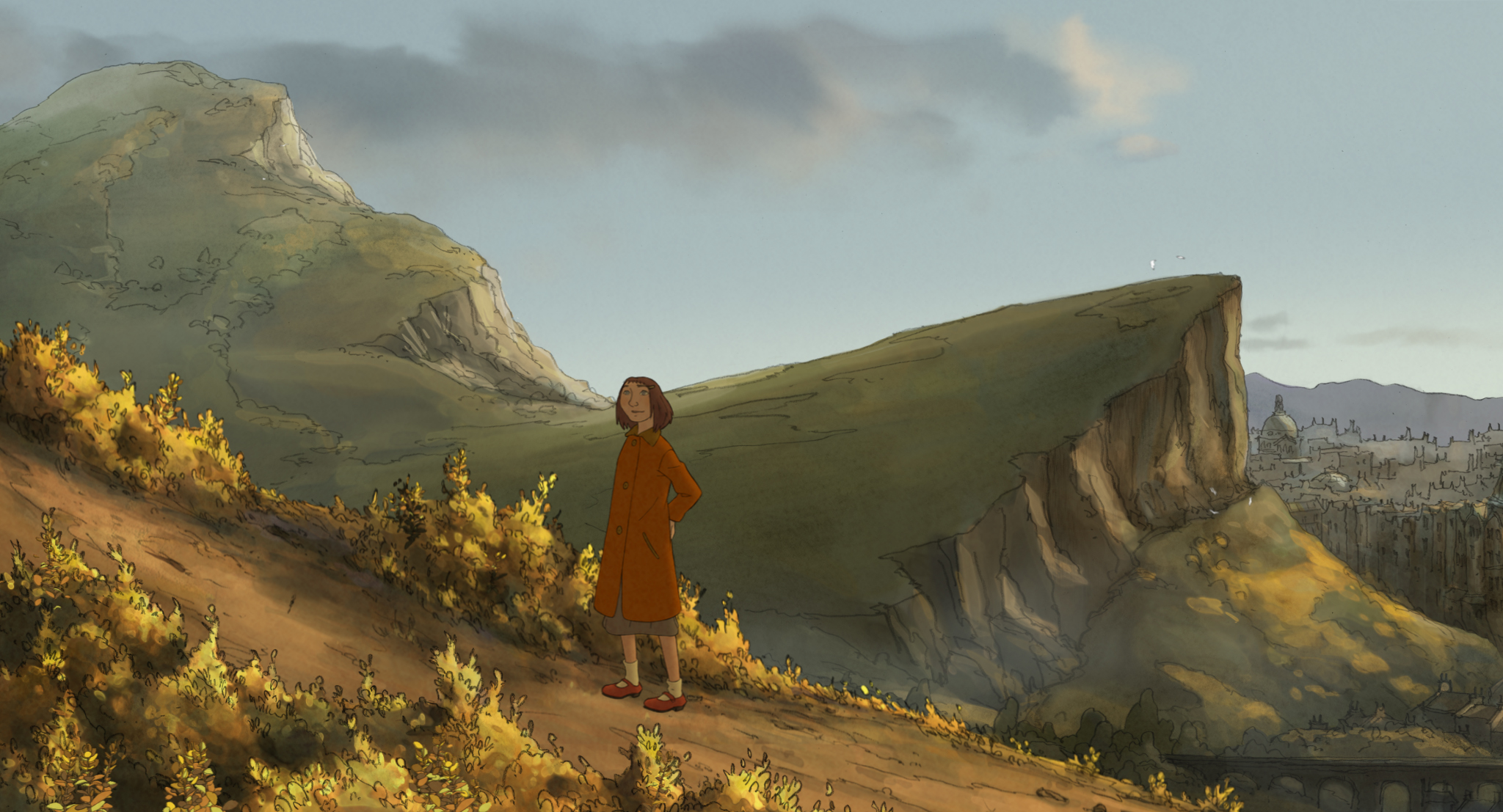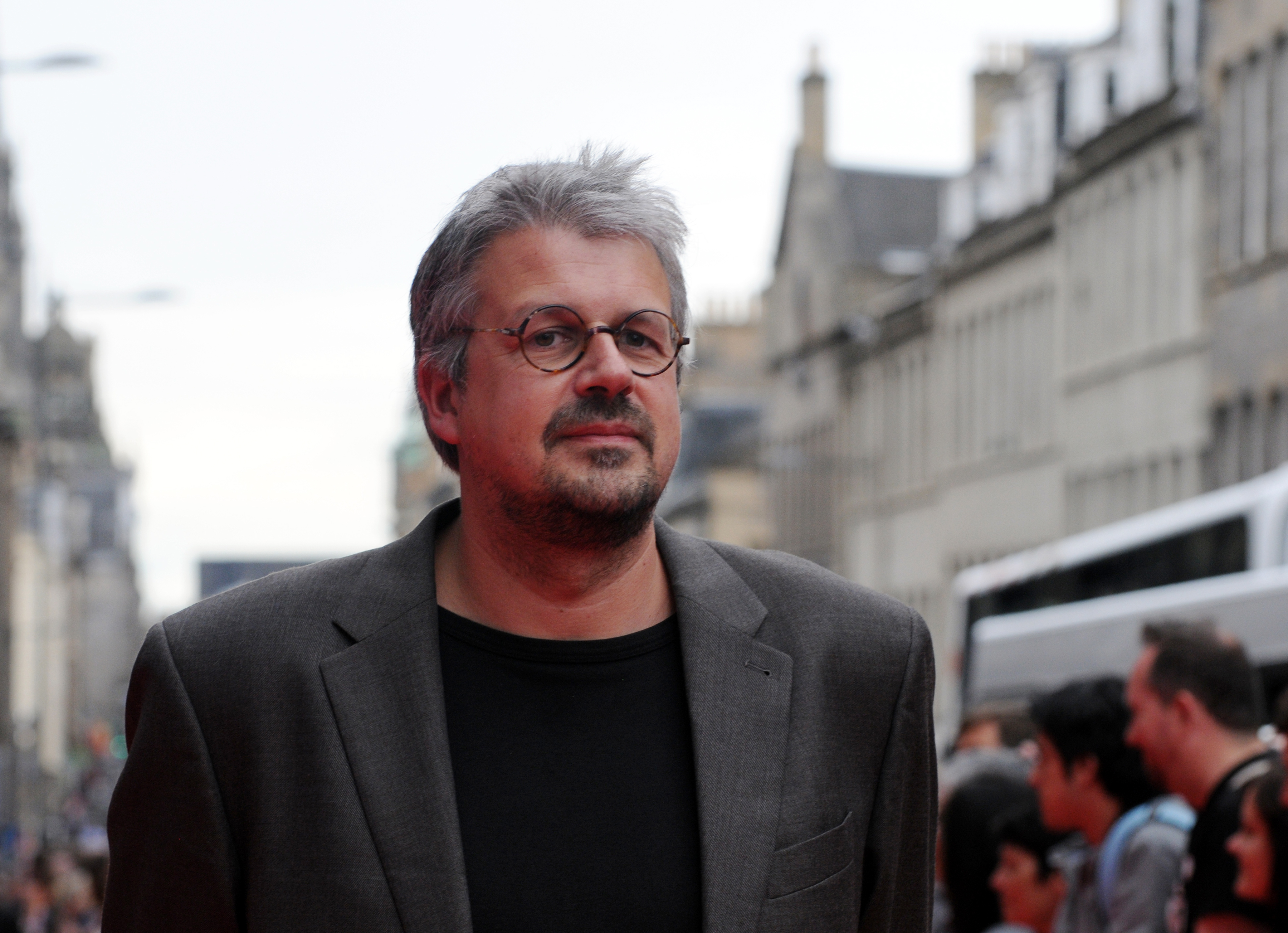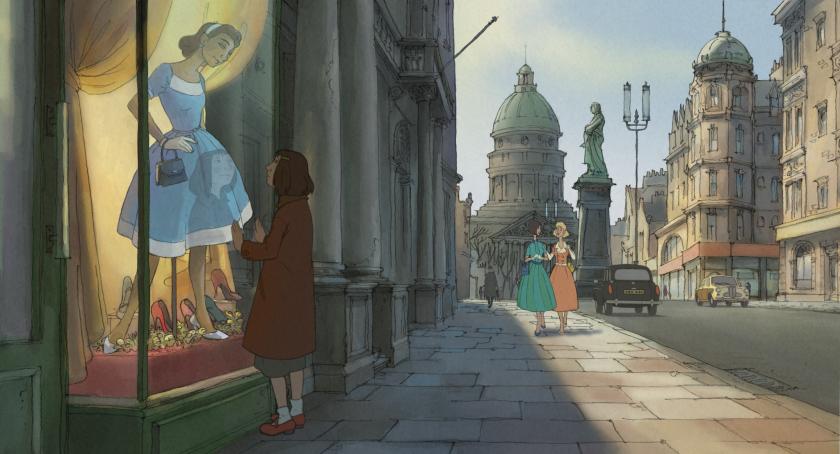Last night’s gala opening of the 64th Edinburgh International Film Festival may have been touched by living history – in particular the presence of Sean Connery (pictured below, arriving at last night's screening), who strode up the red carpet looking sharp and dapper in black – but the film on show, Sylvain Chomet’s ravishing animated feature, The Illusionist, was haunted by old ghosts. Not only the private phantoms of the late comic all-rounder Jacques Tati, who wrote the original script, but also memories of Edinburgh’s past. The audience even enjoyed the strangely dislocating experience of seeing the venue they were sitting in, the Festival Theatre, depicted on screen in its earlier incarnation as the Royal.
Chomet’s feature has been much anticipated since his acclaimed Belleville Rendez-vous in 2003, but The Illusionist has been fraught with complexity and controversy. Originally scheduled for completion in 2007, it was only finished in 2010 after years of work which saw Chomet relocate to Edinburgh and set up his own hand-drawn and painted animation studio, Django Films, employing nearly 100 animators from all over Europe as well as Malaysia and Australia. The end product swallowed 300,000 drawings and a budget somewhere in the region of £13m. The Illusionist’s progress was painstaking in every sense.
 Then there’s the brouhaha over the script Tati wrote back in 1956, the thinly veiled autobiographical tale of a conjurer forming a paternal bond with a young girl captivated by his act, but whom he cannot distract forever from the realities of life and love. In 2000, shortly before her death, the unproduced screenplay was given to Chomet by Tati’s daughter Sophie. The director has dedicated The Illusionist to her, and has been marketing the film as Tati's fond, regretful rumination on his relationship with Sophie.
Then there’s the brouhaha over the script Tati wrote back in 1956, the thinly veiled autobiographical tale of a conjurer forming a paternal bond with a young girl captivated by his act, but whom he cannot distract forever from the realities of life and love. In 2000, shortly before her death, the unproduced screenplay was given to Chomet by Tati’s daughter Sophie. The director has dedicated The Illusionist to her, and has been marketing the film as Tati's fond, regretful rumination on his relationship with Sophie.
However, the family of Tati’s illegitimate and estranged eldest child, Helga Marie-Jeanne Schiel, are adamant that she was the true inspiration for a script that explicitly acknowledged Tati’s feelings of shame at having abandoned and disowned his first child. They accuse Chomet of attempting to sanitise a painful piece of their family history and once again airbrushing Marie-Jeanne Schiel out of every frame.
None of this is incidental to the film. The Illusionist is about fathers and daughters, responsibility, guilt, disappointment and letting go. Chomet moves the spine of the original story from Prague to Edinburgh, but otherwise remains broadly faithful to the original premise.
Tatischeff (essentially a hand-drawn Monsieur Hulot) is a low-rent conjurer in Paris in the late 1950s, out of time in the nascent rock 'n' roll era and wholly out of luck. He and his ill-tempered white rabbit pick up sticks and draw themselves into ever smaller circles, travelling first from Paris to London (where he is upstaged at the Emporium by the latest hot new thing, Billy Boy and the Britoons) then onto Glasgow and the Hebrides, where by a quirk of inebriated fate he is booked to perform at an inn on Iona.
An innocent friendship develops between Tatischeff and Alice, the poor young girl who works in the pub. She is mesmerised by his conjuring tricks, his seeming ability to bend reality in order to give her what she desires. When he leaves the island he finds she has followed him onto the boat, bag packed and mind made up.

The pair head to Edinburgh, which is brought to life with true love and stunning attention to detail. Chomet steepens all the angles of the Old Town to create a magical depiction of the crags and the castle hanging in the air; one sweeping aerial shot (and one of the few instances where CGI is used) corkscrews its way above the city, every chimney stack and pin-prick glow of light picked out. He also brilliantly captures the ever-changing translucent blues and angry purples of the Edinburgh sky.
There’s real emotional heft here, too, for all the wit and meandering beauty
Because the two protagonists - the Gallic and the Gaelic – can’t easily communicate in words, they do so by using tokens: Tatischeff by lavishing the dowdy Alice with smart shoes, fashionable coats and dresses, gifts she believes are simply magicked out of thin air rather than paid for with his painfully short supply of cash; she by cooking, providing a sense of companionship and – and this is where Tati’s own tangled family history steps very clearly into shot – unwittingly allowing him to right some of the wrongs he may have inflicted on his own child.
Tatischeff works hard to keep up the illusion, but the spell inevitably wears off. Love and the enchantment of the city take Alice's thoughts away from the older man, whose parting gift is to tell her that “Magicians do not exist”.  Chomet (right, arriving at last night's EIFF gala screening) and his team have created a film that is utterly sublime to look at, even if it lacks narrative drive. Every frame is a genuine work of art, drawing obvious inspiration from 1960s Disney classics such as 101 Dalmatians and The Aristocats. It's awash with breathtaking images: the phantom-like reflection of a steam train in a river as it crosses a bridge, or a basket of goose feathers scattered in the wind like snow. There are numerous deft, witty touches – “McDounaulds restaurant”, "Men’s Mulletts" hairdresser – and a nice inter-textual moment when the animated Tati meets the on-screen Tati after wandering into the Cameo cinema.
Chomet (right, arriving at last night's EIFF gala screening) and his team have created a film that is utterly sublime to look at, even if it lacks narrative drive. Every frame is a genuine work of art, drawing obvious inspiration from 1960s Disney classics such as 101 Dalmatians and The Aristocats. It's awash with breathtaking images: the phantom-like reflection of a steam train in a river as it crosses a bridge, or a basket of goose feathers scattered in the wind like snow. There are numerous deft, witty touches – “McDounaulds restaurant”, "Men’s Mulletts" hairdresser – and a nice inter-textual moment when the animated Tati meets the on-screen Tati after wandering into the Cameo cinema.
But there’s real emotional heft here, too, for all the wit and meandering beauty. The Illusionist is not just a deeply melancholy portrait of the artist, although its depiction of the performer's life is certainly lacking in glamour: aside from the weary Tatischeff, the film is peopled by suicidal clowns, homeless ventriloquists and seedy hustlers. More than that, it's a darkly poignant reflection on how a parent – the ultimate conjurer in the eyes of any child – is ultimately unable to prevent light streaming in on the magic. Alice, brimming with youth, simply steps into another dream; Tatischeff, meanwhile, has played all his tricks.
- Click here for all the latest EIFF news
- See what's on in the Edinburgh International Festival 2010 Friday 13 August-Sunday 5 September.
- Find Belleville Rendez-vous on Amazon















Add comment